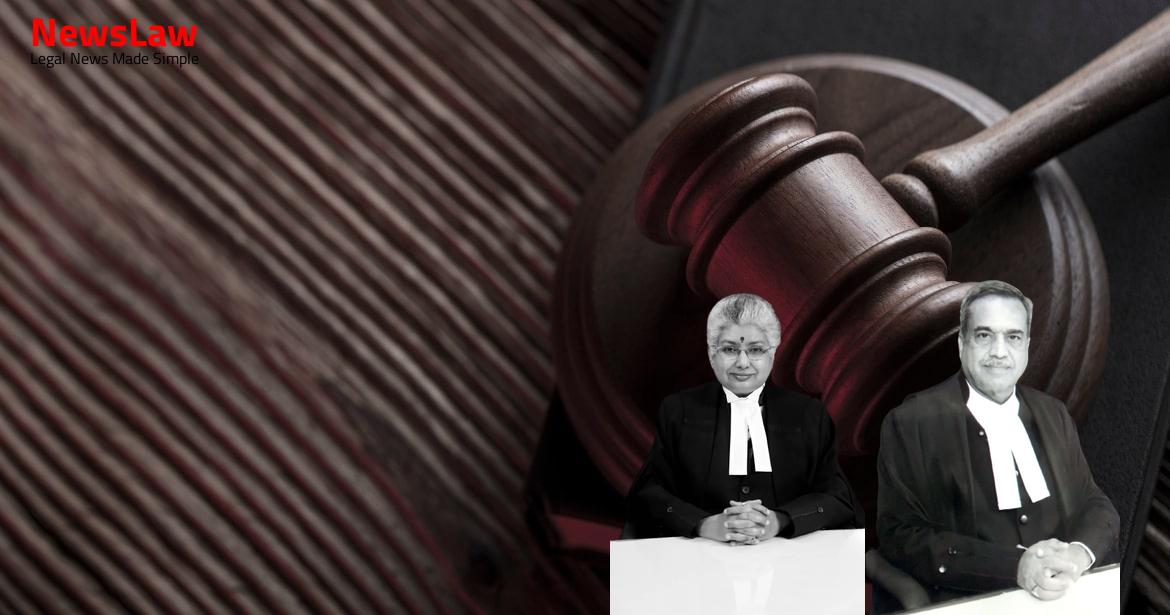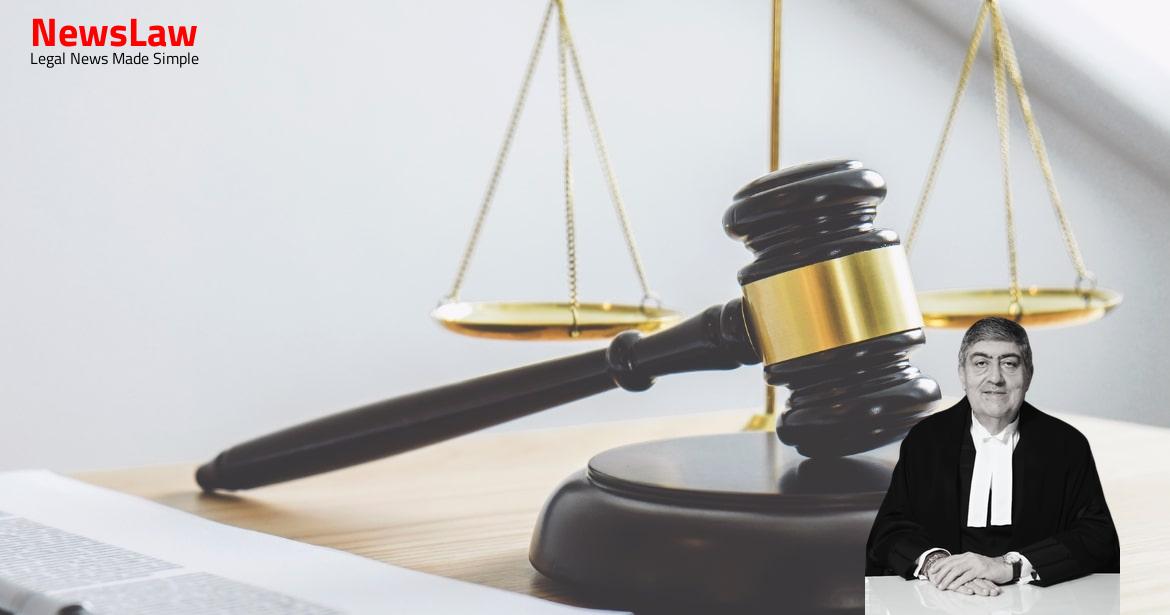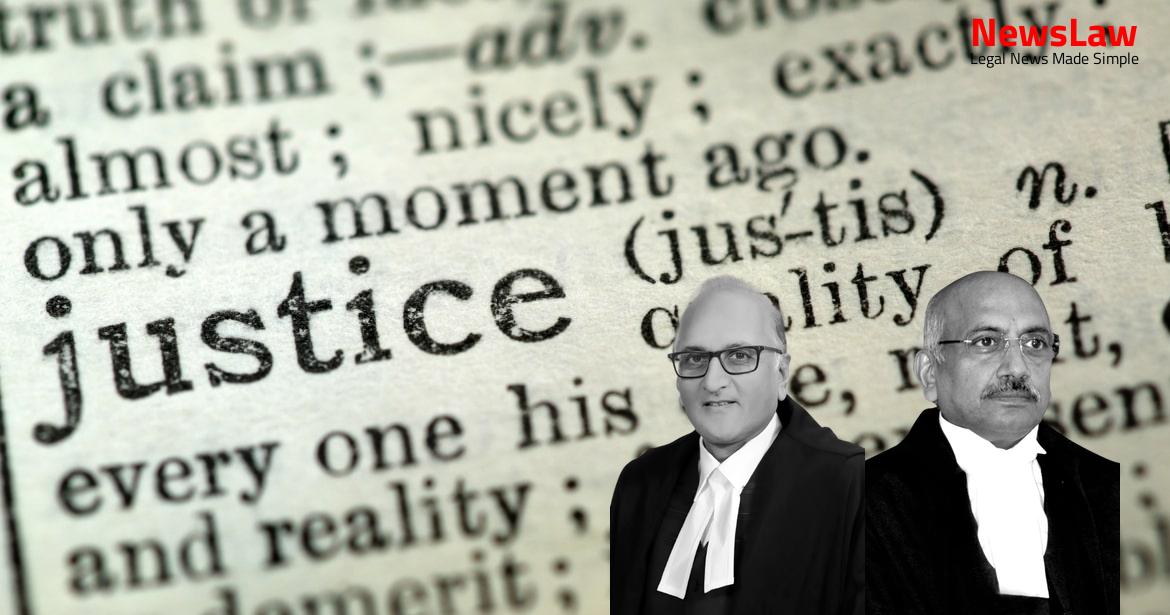The court’s decision on whether defendant Nos. 2 and 3 can file a written statement after the ex-parte decree was set aside is crucial in this legal case. The analysis focuses on the legal aspects surrounding the acceptance of a written statement post such decrees. Let’s dive deeper into the court’s perspective on this matter.
Facts
- Original defendant Nos. 2 and 3 did not file their written statement despite multiple adjournments.
- The case was posted for argument, but appellants – original defendant Nos. 2 and 3 were absent.
- Appellants later requested to allow the filing of written statement and to take up the suit on merits.
- High Court observed that defendant Nos. 2 and 3 cannot file their written statement and can only participate in the hearing without presenting their case.
- The Trial Court framed issues, and appellants sought time to file their written statement, leading to adjournments.
- An ex-parte decree was passed by the Trial Court after appellants failed to file their written statement.
- Plaintiff also sought a decree to declare defendant No. 2 had no authority to alienate the suit land and that certain sale deeds were not binding.
- Appellants filed CMA to set aside the ex-parte decree and requested to condone the delay in filing the application.
- Appellants, defendant Nos. 1 to 3, are dissatisfied with the High Court’s judgment setting aside the ex-parte decree
- High Court allowed condonation of delay but restricted defendant Nos. 2 and 3 from filing their written statement
- Defendant Nos. 2 and 3 can only participate in the hearing based on available materials on record
- Original plaintiff filed CMP No. 1423/2019 against the Trial Court’s order allowing condonation of delay
- High Court confirmed Trial Court’s decision but limited defendant Nos. 2 and 3 in the proceedings
Also Read: Ruling on Circumstantial Evidence in Murder Case
Arguments
- Appellants argue that once the suit was restored by setting aside the ex-parte decree, the Trial Court should have decided on allowing the written statement.
- The High Court’s observation that defendant Nos. 2 and 3 cannot file their written statement is beyond the scope of the petition.
- Appellants’ counsel argues that the High Court erred in prohibiting defendant Nos. 2 and 3 from filing their written statement after setting aside the ex-parte decree.
- No previous order was made by the Trial Court regarding the acceptance of the written statement, making previous case references irrelevant.
- The challenge before the High Court was focused on the delay condonation and ex-parte decree setting aside, not on the written statement filing, justifying the High Court’s decision.
- Defendant Nos. 2 and 3 had multiple opportunities to file their written statement between 2012 and 2017.
- Ex-parte decree set aside, defendants cannot file written statement
- Defendants cannot be relegated back to position prior to date of hearing
- Defendants debarred from filing any written statement
- Impugned order by High Court in line with law laid down in Sangram Singh and Arjun Singh cases
Also Read: Challenging Legal Presumptions in Negotiable Instrument Cases
Analysis
- Appellants filed CMA No. 31/2018 under Order IX Rule 13 of CPC to set aside ex-parte decree, allow filing of written statement, and take up the suit on merits.
- Trial Court allowed CMA No. 31/2018, condoned the delay, set aside the ex-parte decree with a cost of Rs. 25,000/- each to be paid to the plaintiff.
- No further order was passed by the Trial Court on allowing defendant Nos. 2 and 3 to file a written statement after setting aside the ex-parte decree.
- High Court confirmed the Trial Court’s decision of setting aside the ex-parte decree but observed that defendant Nos. 2 and 3 cannot file a written statement.
- Citing cases of Sangram Singh and Arjun Singh, it was pointed out that generally, defendants cannot file a written statement after the ex-parte decree is set aside.
- In this case, defendant Nos. 2 and 3 specifically prayed to file a written statement along with setting aside the ex-parte decree.
- It was argued that in these circumstances, the Trial Court should consider allowing defendant Nos. 2 and 3 to file a written statement as prayed in CMA No. 31/2018.
- The Trial Court did not pass any order on this specific prayer, leading to the appeal and the current analysis.
- The arguments of the respective parties were heard in detail during the proceedings.
- The issue of whether defendant Nos. 2 and 3 may be allowed to file their written statement or not needs to be remanded to the Trial Court.
- The Trial Court had condoned the delay and set aside the ex-parte decree, which was the subject matter before the High Court.
- The High Court’s observation that defendant Nos. 2 and 3 cannot file their written statement was beyond the scope of the matter before them.
- The High Court’s decision regarding defendant Nos. 2 and 3 not being permitted to file their written statement is quashed and set aside.
Also Read: Legal Analysis of Admission Irregularities in Educational Institutions
Decision
- Defendant Nos. 2 and 3 requested to file their written statement within three months from the first hearing of the suit.
- The Trial Court will decide whether to permit the filing of the written statement by Defendant Nos. 2 and 3.
- The Original Plaintiff can oppose this request before the Trial Court.
- The Trial Court will decide if setting aside the ex-parte decree allows Defendant Nos. 2 and 3 to file their written statement.
- The decision will be made in accordance with the law and based on the merits of the case.
- The appeals are allowed only to the extent mentioned above.
- No costs ordered in the current circumstances.
Case Title: SUDHIR RANJAN PATRA (DEAD) THROUGH LRS Vs. HIMANSU SEKHAR SRICHANDAN (2022 INSC 579)
Case Number: C.A. No.-003641-003641 / 2022



